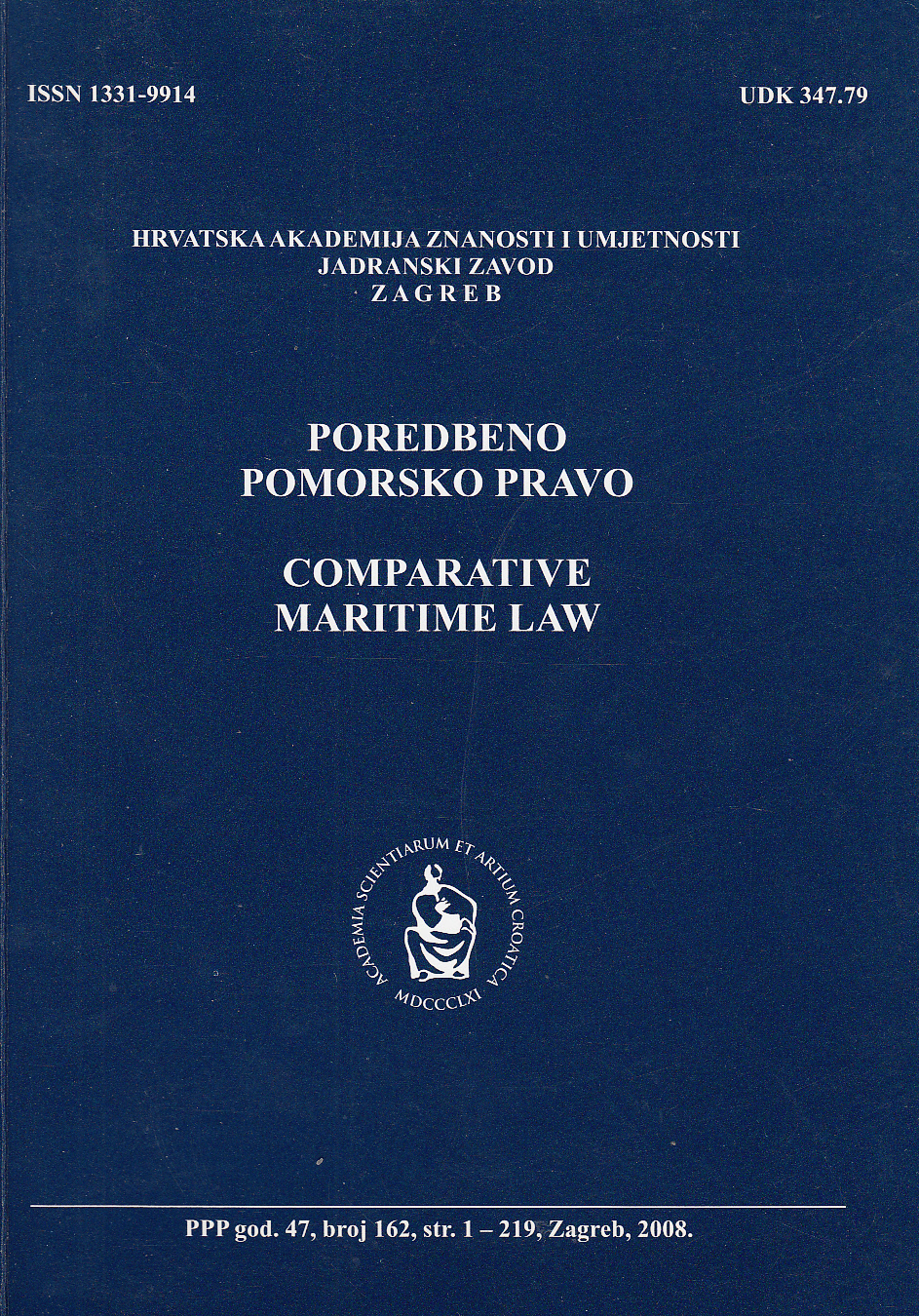Pravni naslov i efektivnost kao osnove suverenosti nad državnim područjem
Legal title and effectivites as grounds for state sovereignty over a territory
Author(s): Vladimir–Đuro DeganSubject(s): International Law
Published by: Hrvatska akademija znanosti i umjetnosti
Keywords: delimitation; maritime boundary; uti possidetis; legal title; historic bays;terra nullius;land dominates the sea (principle);unilateral acts;1982 UN Law of the Sea Convention (UNCLOS);;
Summary/Abstract: This paper deals with the two judgments recently rendered by the International Court of Justice at The Hague. The 2002 Judgment relates to the case concerning sovereignty over Pulau Ligitan and Lulau Sipadan between Indonesioa and Malaysia. The 2007 Judgment was rendered in the case on territorial and maritime Dispute between Nicaragua and Honduras in the Caribbean Sea. In both cases the Court decided on the sovereignty over some small unpopulated or sparsely populated islands far from the coasts of the disputing parties. These formations were recently claimed by the respective states as a consequence of their proclamation of the exclusive economic zone (EEZ). Because no disputing party proved its treaty-based title over the islands, the Court examined their claims of title based on the '''uti possidetis'' principle. However because of absence of any legal title, the Court decided the cases on the basis of effectivités of the stronger claim. In respect of the legal relationship between effectivités and title, the Court relied on its former dictum from the 1986 Judgment in the case between Burkina Faso and Mali, which reads as follows: ''Where the act corresponds exactly to law, where effective administration is additional to the uti possidetis juris, the only role of effectivité is to confirm the exercise of right derived from a legal title. Where the act does not correspond to the law, where the territory which is the subject of the dispute is effectively administered by a State other than the one possessing the legal title, preference should be given to the holder of the title. In the event that the effectivité does not co-exist with any legal title, it must invariably be taken into consideration. Finally, there are cases where the legal title is not capable of showing exactly the territorial expanse to which it relates. The effectivités can then play an essential role in showing how the title is interpreted in practice.'' In addition, the 2007 Judgment has delimited the territorial sea, continental shelf and EEZ between Nicaragua and Honduras, using the bisector line from their relevant mainland coasts, as determined by the Court itself. That line was corrected with 12 miles of the territorial sea off the coastlines of four small islands which were attributed to Honduras. -- . -- In the light of legal principles and accepted practices by the Court in these and some former cases, claims and unilateral acts of Slovenia for maritime areas in the North Adriatic Sea were in this paper examined. The matter is of its claims raised in the Memorandum on the Bay of Piran approved by the Slovenian Parliament in 1993, and in the ''White Paper'' is sued by the Slovenian Ministry of Foreign Affairs in 2006. They contradict Slovenia’s commitment to respect its existing (land) boundaries with Croatia and other neighbouring States at the time of proclamation of its independence. However, Slovenia did not satisfy itself with these ill-founded claims. It adopted some legislative acts by which it unilaterally appropriated without valid title some parts of the territorial sea of Croatia off its coasts, and a part of its continental shelf beyond its territorial sea in the Western Istria. The matter is of its ''Law on the proclamation of the protected ecological zone and of the continental shelf'' of 4 October 2005, and of the Decree of 5 January 2006 on the determination of fishing areas. These unlawful acts were discussed in the light of Articles 2(1), 10(1) and 76(1) of the 1982 UN Law of the Sea Convention, which are conventional obligations of Slovenia as being its party. Besides, all of these acts, as well as attempts of their legal justification, sharply contradict with the well-known principles applicable in maritime delimitations. The matter is of the fundamental principle that the land dominates the sea. Based on it is the principle that any coast from land ter ritory or from an island generates the territorial sea, and subject to its distance from another State’s opposite coast, it can generate the EEZ and continental shelf as well. The matter is also of the principle of non-encroachment by one State on the natural prolon gation of the other; etc. All these Slovenian acts are not opposable on Croatia. It is in right to exercise its jurisdiction up to the median line of the Bay of Piran, and in its extension up to the border of the territorial sea with Italy as determined by the 1975 Osimo Treaty. If Slovenia deems to have its own territorial sea, continental shelf and EEZ on the Croatian side of this line, it should agree on the jurisdiction of the International Court of Justice which will decide this dispute by its final verdict.
Journal: Poredbeno pomorsko pravo
- Issue Year: 47/2008
- Issue No: 162
- Page Range: 1-44
- Page Count: 44
- Language: Croatian

